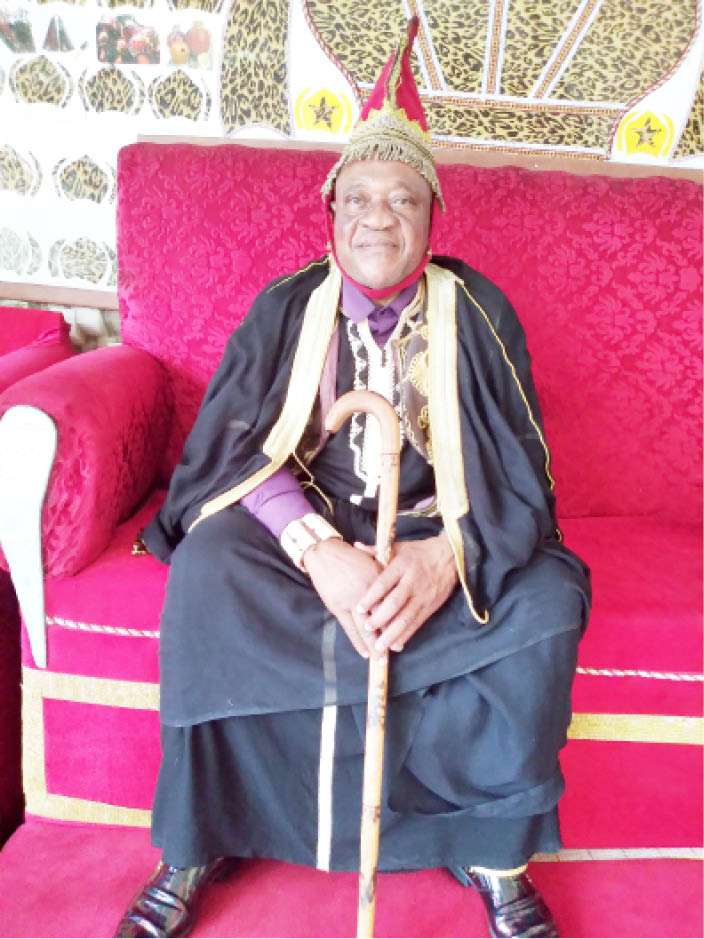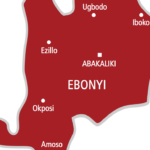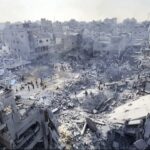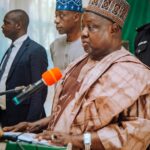Eze (Dr) Sheikh Abdulfatah Chimaeze Emetumah III is the 9th Ofor of Umuofor autonomous community and a member of the Imo State Council of Traditional Rulers.
He is also the grand imam of his community and Igbo land, as well as the deputy chairman, Council of Ndi Eze in Oguta, and the deputy chairman, Traditional Rulers of Oil Producing Communities of Nigeria (TROMPCON). In this interview, he spoke on his experiences as a Muslim presiding over the affairs of a Christian-dominated community.
You described yourself as Emetumah 111 and Ofor IX of Umuofor; can you explain the two titles?
The Umuofor autonomous community is an ancient kingdom. My late father ruled Awa, which was also an autonomous community made up of Awa itself, Ejemekwuru, Abaziem and Umuofor. Years back, before the demise of my father, the other communities became autonomous. As you know, in Igbo land, every Duke and Harry wants to be king; that’s why other communities became autonomous and had their own traditional rulers. So, I am now the traditional ruler of Umuofor only.
- Uneasy calm as police desert streets in South East
- TUC begs El’rufai to pay sacked staff, retirees’ entitlements
My great grandfather, Nnadirinwa was a king under the Umuofor ancient kingdom, then my grandfather Uba Emetumah, as well as my father, Eze AbdulGafar Ihuarueze Emetumah, also a Muslim. He was Emetumah II, and by the grace of the almighty God, today I am Emetumah III.
How did you become a Muslim?
Nobody enters into the Islamic religion unless by God’s grace, but the process here might be human. My father was a founding member of the Anglican Church here in Umuofor. When the civil war ended in 1970, by 1971 or thereabouts he was going to Owerri to sell some ornaments he bought during the war. He was a Biafran millionaire, so he used most of his money to buy some ornaments. When the war ended, any time we lacked food he would take some of them to Owerri to sell and get Nigerian currency. One day he was going to Owerri, and at Ogbaku or somewhere, he saw a man wearing a Muslim gown. He called the man, probably thinking that if he could buy those things off him, he won’t have any cause going to Owerri. He saw the man as Hausa, so he spoke the language him. My father spoke Hausa because he had lived in Kaduna, where I was born. The man told him that he was not Hausa but Igbo like him. He told him that he had something to give him, which was more than what he was selling. He asked what it was and the man said he wanted to give him Islam. My father said Islam was Hausa religion, but the man said, ‘I am not Hausa. I am Igbo like you.’
From there, they exchanged dates. That was how my father was converted to Islam. All the members of his family and almost half of this village joined him because he was a man of goodwill. However, most of them are no longer Muslims, but few of them have remained till date.
I was named Abdulfatai, which is an Arabic word for success or opening. It is also in the book of Mark. This Arabic we speak was called Aramaic in the days of Christ. When Christ wanted to open the eyes of the blind or ears, or heal the deaf, he would say, ‘Efata.’ Efata means open or be opened. That refers to my name, Fatai. One day, one of the bishops came here; I told him that my name was also in the bible and he laughed.
What is the population of Muslims in Umuofor?
I think Muslims make up 20 or 25 per cent of the population of the community here.
In those days, there was some level of religious tolerance, but these are troubled times, with religious and inter ethnic crises here and there. How have you been successfully presiding over the affairs of your community as a Muslim?
When my father died in 2007, after the statutory one year mourning period, they applied to become an autonomous community in 2019, and between 2010 and 2011, it was approved. They unanimously appointed me as their traditional ruler. They did not bother about my faith. As a matter of fact, here in my cabinet, Christians are in the majority. Any time we hold Council meetings, the Christians offer the prayers. Although we have few Muslims here, I don’t allow them to offer their prayers. At the end, all of us will say, “In Jesus name, Amen.’’ When I am praying before the Christian community, I pray in the Christian way. I only pray in the Muslim way when I am with my Muslim brothers.
When they are doing anything in the church and I am invited, I go there. Two weeks ago, when the vicarage of the Anglican Church was opened, I was there with the late Bishop Oti. I am always happy because during Easter and Christmas festivities I join them in worship. I join them whenever they are doing anything.
But it has not been easy. You know that in every 12, there must be a Judas. So we still have those who are causing problems. There are people who lack knowledge, but they are in minority. Since God created the world, evildoers and anarchists have always been in the minority; that is why they have not been able to succeed. In Nigeria, we are about 250million in population, but those who are causing trouble are not up to one million, so they will not succeed.
What is the attitude of your community towards the few Muslims from the northern part of the country?
I have to be frank with you, since 1999 there has been what I call Islam phobia in the South-East. And everybody from the North is looked at as a Muslim. That’s one of the problems we have been facing.
How have you been able to protect them against attacks?
Whenever there is a problem some of them run to my palace. I have a mosque here where some of them may be harboured. Some of them also go to Owerri and stay. In Oguta and Egbema, whenever there is a problem, we protect them.
You would also realise that there are bad eggs among them. When we were kids, and up till now, you would see true herdsmen with stick or knives to repel reptiles or fight danger on their way, but today, you see them with guns. It is very strange. To me, those with guns are not true herdsmen. Most of them are from outside the country and some are Boko Haram fighters who have infiltrated genuine herdsmen to perpetrate criminal activities. So, some of the herdsmen have to take the blame.
In this area, whenever there is any problem, other traditional rulers seek my intervention as a Muslim.
What is your advice on the general religious phobia in the country?
Sometime ago in 2018 when I paid a prayer visit to Mr President, I told him that nobody was Igbo, Hausa, Yoruba or Fulani. These things are mere linguistic nomenclatures. All of us are God’s creatures. We are human beings. All men are born equal before God. We are blacks by race, Africans by tribe and Nigerians by nationality. So Igbo, Hausa, Yoruba – whatever you call it – are interrelated. We share a lot in common.
Most of us in this country practise xenophobia and call it religion. While xenophobia is about fear and hate, religion is all about love and peace. All over the world, not only in Nigeria, we are abusing religion.
Christ’s message is love (Love your neighbour as you love yourself) and Islam is peace (Salaam). The greeting of every Muslim anywhere is salaam. Now, where is the peace? It only exists in our mouth.
When a former president of South Africa, Thabo Mbeki, was asked when Africa would develop, he said until they stopped killing one another. Africans kill one another because they see themselves on tribal and religious lines. That is the problem.
Tribes are divine, but tribalism is evil. Nations are divine, but nationalism is evil. Also, religion is divine, but intolerance and bigotry are evil.
What I am preaching is peace. Whether you are a Muslim or Christians, there is time for everything. God knows why he allowed 250million in this country. If the country is going to disintegrate, he knows. No country is bound to stay together forever, but if you do it before its time, the consequences will be high.

 Join Daily Trust WhatsApp Community For Quick Access To News and Happenings Around You.
Join Daily Trust WhatsApp Community For Quick Access To News and Happenings Around You.


